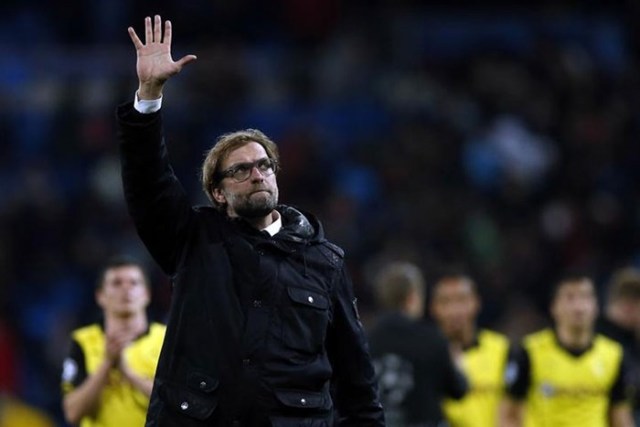
KARACHI: “It was like a heart attack. It was one day after [the 3-2 victory over Malaga]," Jurgen Klopp told The Guardian regarding Mario Goetze’s decision to join Bayern Munich. “I had one day to celebrate and then somebody thought: 'Enough, go back down on the floor'. At our training ground [general manager] Michael Zorc walked in like somebody had died. Michael asked if I wanted to talk and I said: 'No, I have to go'.”
Klopp revealed he was unable to talk to anyone, even his wife, after it was announced that Goetze will leave the club. Perhaps Goetze’s story sums up Klopp’s Dortmund journey better than anything else.
The diminutive playmaker — the darling of German football as he was called when he used to don the colours of Dortmund — was promoted to the first team by Klopp. In just a few years he became the focal point of the side and helped them to the Champions League final. Then along came Bayern, and Bayern could not be turned down. Klopp lost the player he was building his side around — his darling, Germany’s darling. But that was not the only hurdle Klopp had to jump. His seven years at Dortmund have been defined as much by the myriad of problems he has had to overcome as by the unlikely successes he has mustered despite those problems.
It all started in 2008 when Dortmund parted ways with Thomas Doll after finishing 13th in the league. The club’s decision to sign Klopp was not a particularly popular one to begin with; the towering manager oversaw FSV Mainz 05’s relegation and resigned after he was unable to help them gain promotion. A manager from a lower division and a team that had finished just three places above the relegation spots — hardly a match made in heaven.
In his first season, Dortmund finished sixth. In his next, they finished fifth and qualified for the Europa league. An upward trajectory, but even the most optimistic fans of football-crazed Dortmund would not have dreamt of what was to come.
In 2010-11, the club roared to the title, winning it by a clear seven points. Just five years ago, Dortmund were battling bankruptcy and a very real threat to their existence — now they were champions of Germany. The campaign included a league double over defending champions Bayern and set several records on the way, including claiming an incredible 47 points from the 51 available in the second half of the season.
Many wrote it off as a one-off. By all means and purposes, it should have been. It was not. The next season they won the title by 12 points, gaining top spot in round 20 and never relinquishing it for the rest of the reason. Again it included a league double over Bayern, who suddenly realised they were not the only power at work in Germany anymore.
And as if to underline that, Klopp’s Dortmund followed up the league win with a 5-2 dismantling of Bayern in the DFB-Pokal final. The side Bayern had helped save from bankruptcy less than 10 years ago was now its biggest threat to German dominance.
Such remarkable results would go on to become a hallmark under Klopp, with Dortmund employing an unrelenting and breathless pressing game and a similarly high-octane form of counter-attack. The 3-2 win over Malaga in the 2012-13 run to the final; Marco Reus and Felipe Santana scoring in the 91st and 93rd minutes when Dortmund were 2-1 down and needed to win to go through. The 4-1 win over Real Madrid, featuring a four-goal Lewandowski salvo, as Dortmund truly announced themselves as a force in Europe. The 2-0 win over eventual champions Real last year. It seemed Dortmund’s Klopp — unsung, unfancied and unheralded — existed only to defy the odds with nothing but sheer power of will. And for several glorious years, he fought and defeated the established hegemony of power.
However, dwarfed in terms of financial muscle by Bayern and the other giants of Europe, Dortmund were unable to hold onto their best players and slowly began the demise of Der BVB. Nuri Sahin, Shinji Kagawa, Goetze and Robert Lewandowski all left one after the other but Klopp carried on, weakened by each body blow, until it all finally caught up with him this season. From being the heroes who conquered German and European hearts to self-labelled ‘complete idiots’, Dortmund’s fall from grace has been as remarkable as their rise once was. Klopp, understandably, felt it was time to move on like his players had before him.
And so ends the fairy-tale romance of Klopp, eccentric to the point of being almost maniacal, and Dortmund, the club with the most passionate fans of them all. His last season has been as underwhelming as his predecessor’s but the legend of Klopp — the man who gave Dortmund their pride back — shall endure. The fabled yellow wall will never forget Klopp, and Klopp will never forget the yellow wall.
Like Sports on Facebook, follow @ETribuneSports on Twitter to stay informed and join in the conversation.





































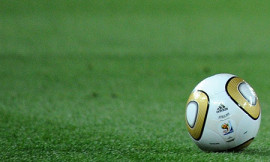
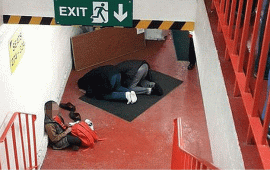
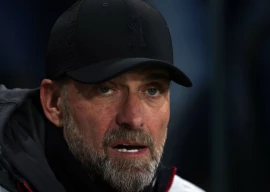
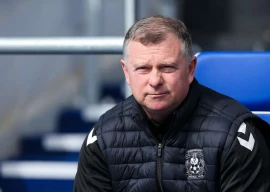

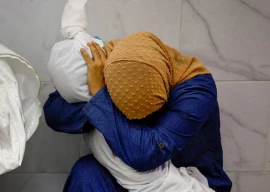

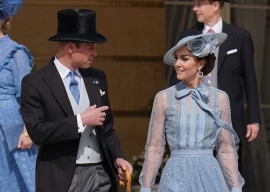




















COMMENTS
Comments are moderated and generally will be posted if they are on-topic and not abusive.
For more information, please see our Comments FAQ